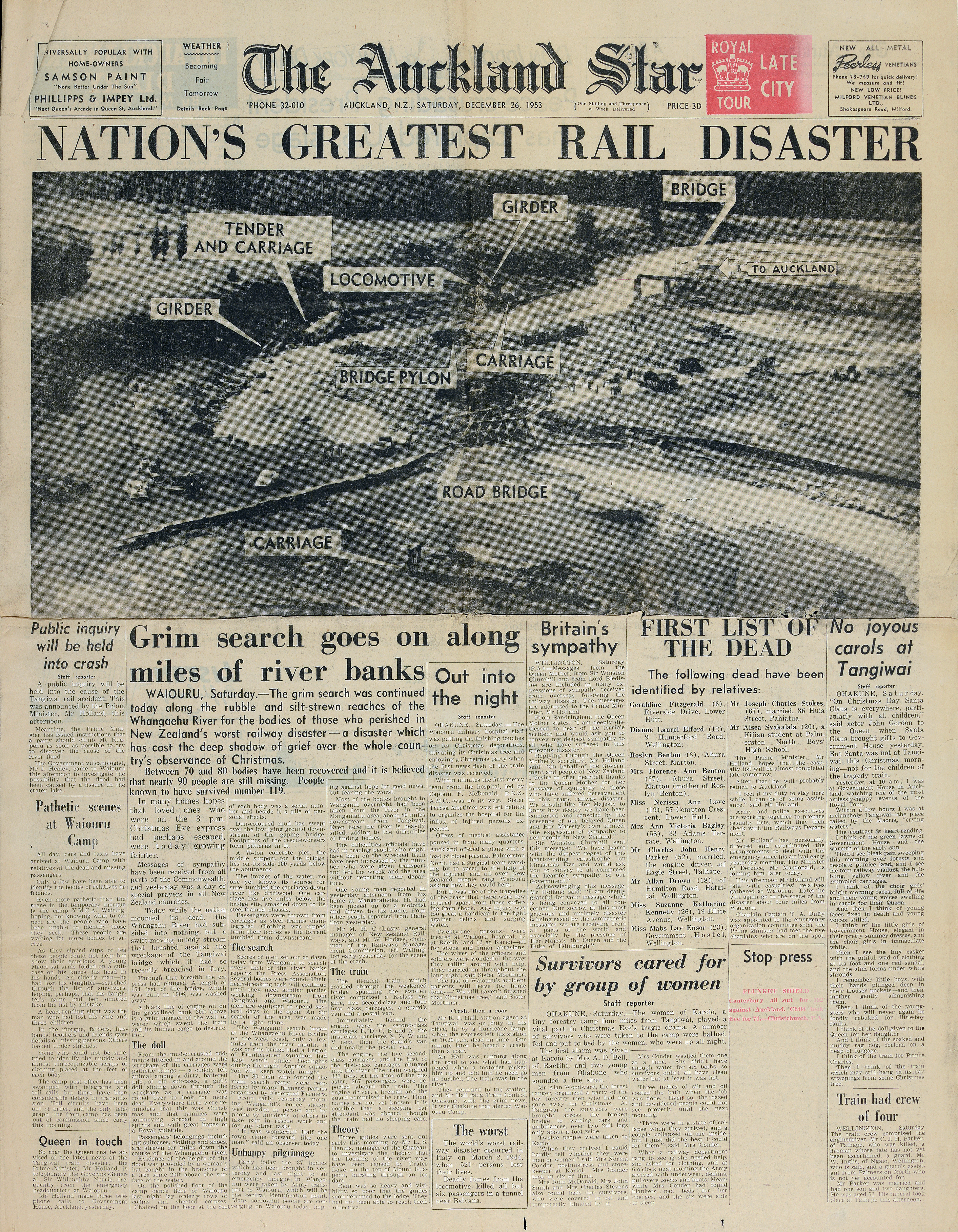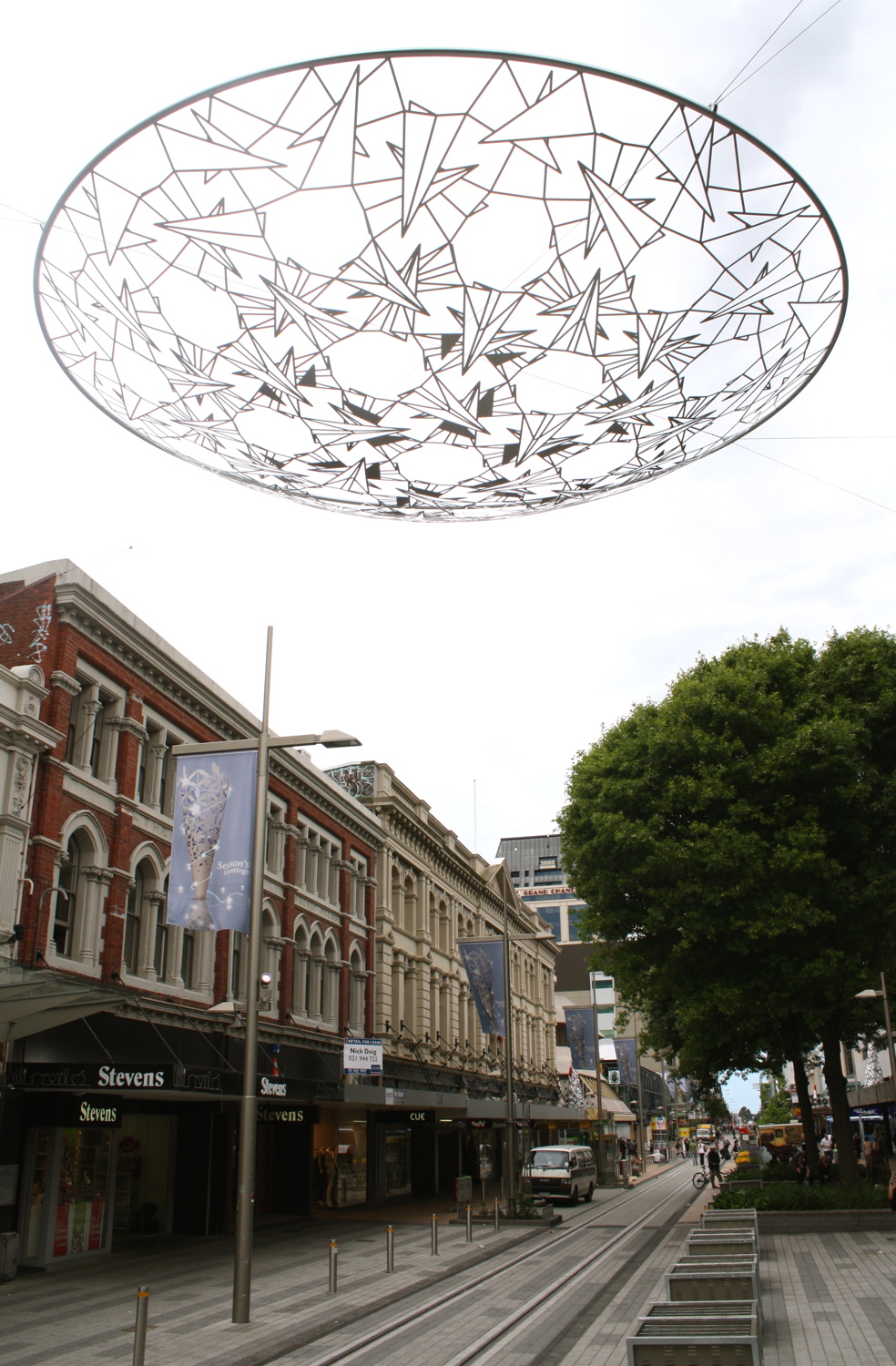|
Christchurch South
Christchurch South was a parliamentary New Zealand electorates, electorate in the city of Christchurch, New Zealand from 1881 to 1890 and then from 1905 to 1946. Population centres The previous electoral redistribution was undertaken in 1875 for the 1875–1876 New Zealand general election, 1875–1876 election. In the six years since, New Zealand's European population had increased by 65%. In the 1881 electoral redistribution, the New Zealand House of Representatives, House of Representatives increased the number of European representatives to 91 (up from 84 since the 1875–76 election). The number of Māori electorates was held at four. The House further decided that electorates should not have more than one representative, which led to 35 new electorates being formed, including Christchurch South, and two electorates that had previously been abolished to be recreated. This necessitated a major disruption to existing boundaries. The boundaries of the Christchurch South elector ... [...More Info...] [...Related Items...] OR: [Wikipedia] [Google] [Baidu] |
New Zealand Electorates
An electorate or electoral district ( mi, rohe pōti) is a geographical constituency used for electing a member () to the New Zealand Parliament. The size of electorates is determined such that all electorates have approximately the same population. Before 1996, all MPs were directly chosen for office by the voters of an electorate. In New Zealand's electoral system, 72 of the usually 120 seats in Parliament are filled by electorate members, with the remainder being filled from party lists in order to achieve proportional representation among parties. The 72 electorates are made up from 65 general and seven Māori electorates. The number of electorates increases periodically in line with national population growth; the number was increased from 71 to 72 starting at the 2020 general election. Terminology The Electoral Act 1993 refers to electorates as "electoral districts". Electorates are informally referred to as "seats", but technically the term ''seat'' refers to an elect ... [...More Info...] [...Related Items...] OR: [Wikipedia] [Google] [Baidu] |
Melville Lyons
Melville Edwin Lyons (27 February 1889 – 7 May 1955), sometimes called Tiny, was briefly a Reform Party Member of Parliament in New Zealand until his election was declared void. A journalist by trade, he became involved in local politics in Christchurch after having served in WWI. He was Deputy Mayor of Christchurch for six years under mayor Ernest Andrews. Early life Lyons was born on 27 February 1889 (note that his birth certificate appears under the date 27 March 1889) in Masterton. His parents were Thomas Adian Lyons, an overseer at a sheep station and later a shepherd, and Mary Lyons (née McIver). His parents had married on 6 March 1880 in Timaru and siblings of Melville Lyons were Joseph James (born 18 May 1881 in Burkes Pass), Esther (born 1883 in Opiki near Timaru), Ethel Mary and Seafield. The family moved to the Masterton area in about 1884. After the last child was born, his father returned to Australia and nothing was heard of him again. Melville Lyons atte ... [...More Info...] [...Related Items...] OR: [Wikipedia] [Google] [Baidu] |
1914 New Zealand General Election
The 1914 New Zealand general election was held on 10 December to elect a total of 80 MPs to the 19th session of the New Zealand Parliament. The Maori vote was held on 11 December. A total number of 616,043 voters were registered, of which 84.7% voters turned out to vote. The election saw William Massey's Reform Government maintain power. The second-ballot voting system had been repealed in 1913, and first-past-the-post voting reinstated for the 1914 election. Soldiers serving overseas in the NZEF were given a vote by the Expeditionary Forces Voting Act, 1914. They voted for a party ( Liberal, Labour or Reform) and their votes were allocated to a candidate for their electorate by a representative of their party; which sometimes required the representative to choose between rival "Liberal" or "Labour" candidates. Summary of results Party totals *Auckland West, Hawke's Bay, Taumarunui, Wairarapa, Waitaki and Wellington Central were won by the Liberals from Reform *Chalme ... [...More Info...] [...Related Items...] OR: [Wikipedia] [Google] [Baidu] |
1928 New Zealand General Election
The 1928 New Zealand general election was held on 13 and 14 November in the Māori and European electorates, respectively, to elect 80 MPs to the 23rd session of the New Zealand Parliament. 1928 was the year postal voting was introduced for certain specified groups (e.g. invalids) who could not get to a polling booth on election day. The election The 1928 election was held on Tuesday, 13 November in the Māori electorates, and on Wednesday, 14 November in the general electorates to elect a total of 80 MPs to the 23rd session of Parliament. A total of 844,633 electors were registered on the European roll, of which 743,691 (88.05%) turned out to vote. All 80 electorates were contested. 47 and 29 electorates were in the North Island and South Island, respectively, plus the 4 Māori electorates. In 1927, a faction of the decaying Liberal Party formed a new organisation, which was eventually named the United Party. In 1928, to the considerable surprise of most observers and many m ... [...More Info...] [...Related Items...] OR: [Wikipedia] [Google] [Baidu] |
Auckland Star
The ''Auckland Star'' was an evening daily newspaper published in Auckland, New Zealand, from 24 March 1870 to 16 August 1991. Survived by its Sunday edition, the ''Sunday Star'', part of its name endures in '' The Sunday Star-Times'', created in the 1994 merger of the ''Dominion Sunday Times'' and the ''Sunday Star''. Originally published as the ''Evening Star'' from 24 March 1870 to 7 March 1879, the paper continued as the ''Auckland Evening Star'' between 8 March 1879 and 12 April 1887, and from then on as the ''Auckland Star''. One of the paper's notable investigative journalists was Pat Booth, who was responsible for notable coverage of the Crewe murders and the eventual exoneration of Arthur Allan Thomas. Booth and the paper extensively reported on the Mr Asia case. In 1987, the owners of the ''Star'' launched a morning newspaper to more directly compete with ''The New Zealand Herald''. The ''Auckland Sun'' was affected by the 1987 stock market crash and folded a year ... [...More Info...] [...Related Items...] OR: [Wikipedia] [Google] [Baidu] |
1931 New Zealand General Election
The 1931 New Zealand general election was a nationwide vote to determine the shape of the New Zealand Parliament's 24th term. It resulted in the newly formed coalition between the United Party and the Reform Party remaining in office as the United–Reform Coalition Government, although the opposition Labour Party made some minor gains despite tallying more votes than any other single party. Background In the 1928 election, the Reform Party won 28 seats to the United Party's 27 seats. Shortly after the election the Reform Party lost a vote of no-confidence and the United Party managed to form a government, the United Government, with the support of the Labour Party, with governing Reform Party going into the opposition. In 1931, however, the agreement between United and Labour collapsed due to differing opinions on how to counter the Great Depression. The Reform Party, fearing that the Depression would give Labour a substantial boost, reluctantly agreed to form a coaliti ... [...More Info...] [...Related Items...] OR: [Wikipedia] [Google] [Baidu] |
The Press
''The Press'' is a daily newspaper published in Christchurch, New Zealand owned by media business Stuff Ltd. First published in 1861, the newspaper is the largest circulating daily in the South Island and publishes Monday to Saturday. One community newspaper—''Northern Outlook''- is also published by ''The Press'' and is free. The newspaper has won the title of New Zealand Newspaper of the Year (in its circulation category) three times: in 2006, 2007 and 2012. It has also won the overall Newspaper of the Year title twice: in 2006 and 2007. History James FitzGerald came to Lyttelton on the ''Charlotte Jane'' in December 1850, and was from January 1851 the first editor of the ''Lyttelton Times'', Canterbury's first newspaper. From 1853, he focussed on politics and withdrew from the ''Lyttelton Times''. After several years in England, he returned to Canterbury concerned about the proposed capital works programme of the provincial government, with his chief concern the pro ... [...More Info...] [...Related Items...] OR: [Wikipedia] [Google] [Baidu] |
Ron Guthrey
Albert Ronald Guthrey (15 January 1916 – 8 September 2008) was a New Zealand local politician. He served as a Christchurch City Councillor for 22 years before being elected Mayor of Christchurch. He was a World War II veteran and he and his family were (and still are) well-known business operators in Christchurch. Early life Guthrey was born in Rawene, Hokianga on 15 January 1916. He attended Waitaki Boys' High School. He was an entrepreneur from a young age, as shown by his insurance scheme for caning. Guthrey charged a shilling a term and paid out a penny per whack. The insurance scheme folded when a number of boarders staged a sleep in and were disciplined accordingly. He saved himself by walking into town, buying a case of small apples, and because there was no tuck shop at school, was able to sell them at 100% mark-up. Military service Guthrey was a member of the New Zealand 20th Battalion during World War II. The battalion left Lyttelton on 5 January 1940 for Egypt. ... [...More Info...] [...Related Items...] OR: [Wikipedia] [Google] [Baidu] |
Harry Ell
Henry George Ell (probably 24 September 1862 – 27 June 1934), commonly known as Harry Ell, was a Christchurch City councillor and a New Zealand Member of Parliament. He is famous for his conservation work around Christchurch's Port Hills, his advocacy for the Summit Road, and his construction of the Sign of the Takahe and other road houses along the Summit Road. Early years Ell was born in Christchurch, New Zealand, and grew up on his father's farm in Halswell. As a teenager he worked at the Canterbury Museum, then as a farm hand. Between 1881 and 1884 he was a member of the Armed Constabulary in Taranaki, where he participated in the destruction of Parihaka. This experience turned him into a stern critic of the race-relations policies of the time. Ell was a Christchurch City councillor in 1903 and then again between 1917 and 1919. He was a member of the Knights of Labour and the Canterbury Liberal Association. Member of Parliament Ell stood as a prohibitionist for ... [...More Info...] [...Related Items...] OR: [Wikipedia] [Google] [Baidu] |
Christchurch (New Zealand Electorate)
Christchurch was a parliamentary electorate in Christchurch, New Zealand. It existed three times. Originally it was the Town of Christchurch from 1853 to 1860. From the 1860–1861 election to the 1871 election, it existed as City of Christchurch. It then existed from the 1875–1876 election until the 1881 election. The last period was from the 1890 election to the 1905 election. Since the 1946 election, a similarly named electorate called Christchurch Central has been in existence. The historic electorate was represented by 21 members of parliament. For some of the time, it was represented by one member at a time. During other periods, it was one of the few three-member electorates in New Zealand. Population centres In December 1887, the House of Representatives voted to reduce its membership from general electorates from 91 to 70. The 1890 electoral redistribution used the same 1886 census data used for the 1887 electoral redistribution. In addition, three-member ele ... [...More Info...] [...Related Items...] OR: [Wikipedia] [Google] [Baidu] |
Mayor Of Christchurch
The Mayor of Christchurch is the head of the municipal government of Christchurch, New Zealand, and presides over the Christchurch City Council. The mayor is directly elected using a First Past the Post electoral system. The current mayor, Phil Mauger, was elected in the 2022 mayoral election. The current deputy mayor is Pauline Cotter. Christchurch was initially governed by the chairman of the town council. In 1868, the chairman became the city council's first mayor as determined by his fellow city councillors. Since 1875, the mayor is elected by eligible voters and, after an uncontested election, the first election was held in the following year. History Chairmen of the Town Council Christchurch became a city by Royal charter on 31 July 1856; the first in New Zealand. Since 1862, chairmen were in charge of local government. Five chairmen presided in the initial years: Mayors of the City Council The town council held a meeting on 10 June 1868 to elect its first mayor ... [...More Info...] [...Related Items...] OR: [Wikipedia] [Google] [Baidu] |
John A
Sir John Alexander Macdonald (January 10 or 11, 1815 – June 6, 1891) was the first prime minister of Canada, serving from 1867 to 1873 and from 1878 to 1891. The dominant figure of Canadian Confederation, he had a political career that spanned almost half a century. Macdonald was born in Scotland; when he was a boy his family immigrated to Kingston in the Province of Upper Canada (today in eastern Ontario). As a lawyer, he was involved in several high-profile cases and quickly became prominent in Kingston, which elected him in 1844 to the legislature of the Province of Canada. By 1857, he had become premier under the colony's unstable political system. In 1864, when no party proved capable of governing for long, Macdonald agreed to a proposal from his political rival, George Brown, that the parties unite in a Great Coalition to seek federation and political reform. Macdonald was the leading figure in the subsequent discussions and conferences, which resulted in th ... [...More Info...] [...Related Items...] OR: [Wikipedia] [Google] [Baidu] |







